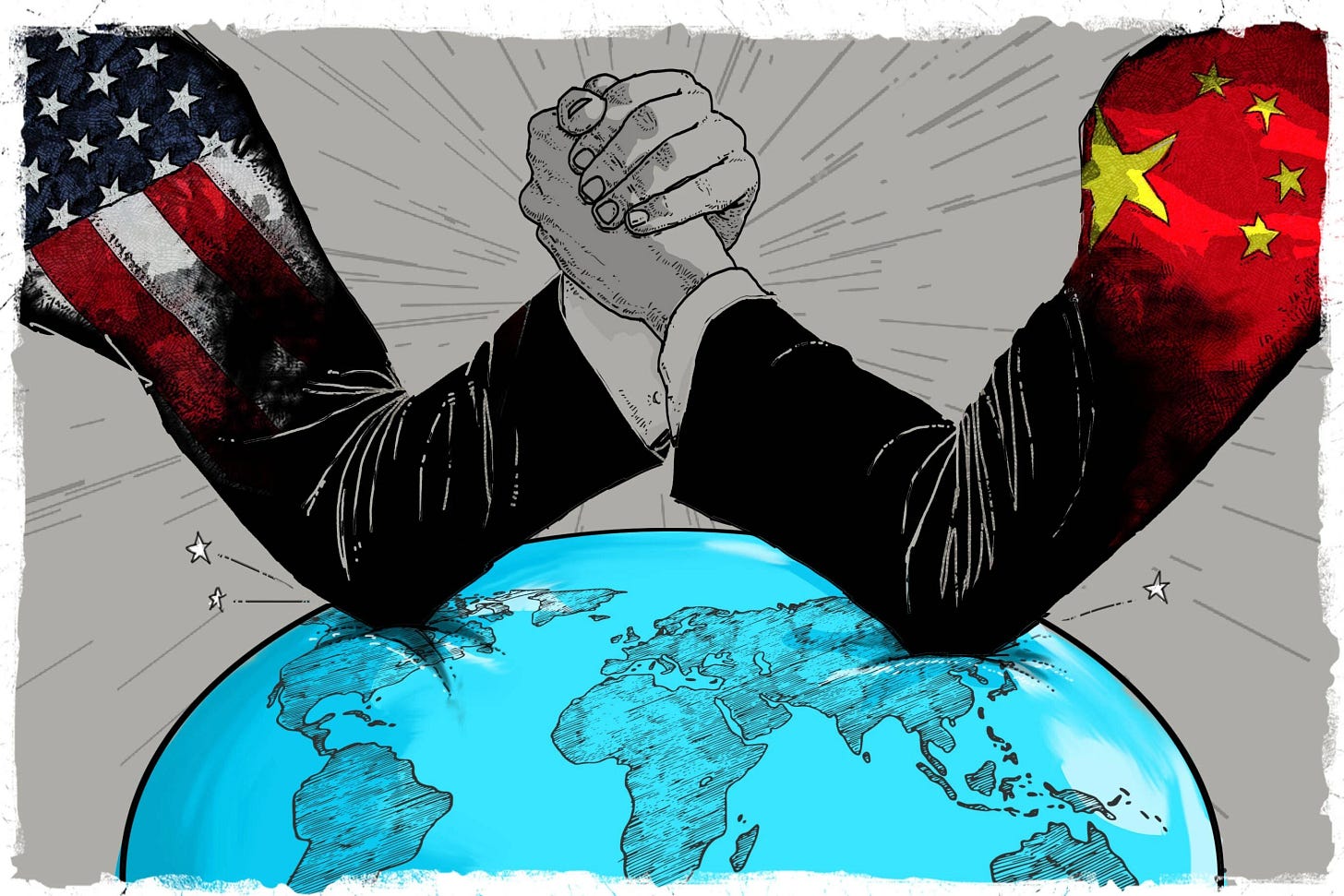Over and above observable tensions and rivalry, the relationship between the United States and China represents more than an orthodox geopolitical feud—it embodies a profound disconnect between distinct meaning-making systems. Beyond today's $600 billion commercial relationship lies a more fundamental problem: two sophisticated diplomatic traditions operating from incompatible premises. Though mostly undetectable, the Sinic worldview, with its ancient Confucian and communitarian ideals, contrasts openly with the Occidental worldview born out of the 18th-century European Enlightenment and a commitment to individual freedoms.
Take the concept of mianzi, for example. This multidimensional Chinese concept encompassing personal dignity, social standing, and mutual recognition is deeply embedded in the Sinic world-system. It serves not just as cultural etiquette but as a general organizing principle that diplomats in the West have yet to fully grasp. Mianzi extends beyond individual status to create reciprocal duties within core relationships. Unlike Western notions of 'face' or 'pride'’ mianzi functions as an essential social architecture determining whether meaningful exchange is even possible. This makes it fundamental rather than optional in Chinese diplomatic and social interactions.
The 1961 Vienna Summit perfectly illustrates this cultural gap. Kennedy offered a concession on Berlin, expecting reciprocity, but was blindsided when Khrushchev aggressively exploited this opening. Rather than recognizing a fundamental difference in negotiation frameworks, American diplomacy drew a flawed conclusion that persists today: show no weakness, as concessions will be punished rather than returned.
Chinese diplomatic thought interprets this same historical moment through an entirely different epistemological lens. The failure at Vienna was not a tactical error but a structural misreading of how enduring agreements should be constructed. Chinese consular manuals instruct diplomats to preserve the dignity of their counterparts during negotiations. This does not in any sense reflect weakness or sentimentality but a pragmatic recognition that agreements without preservation of mutual respect eventually collapse under their own contradictions.
This divergence moves beyond technique into the realm of ontology. Western negotiating structures conceive of diplomacy as discrete transactions between autonomous actors making rational calculations of material interest. Relationships emerge after negotiations have concluded, if at all. The Chinese conception inverts this sequence—relationship constitutes the prerequisite condition for authentic negotiation. Without established relational architecture, technical discussions lack foundation.
Contemporary China has recalibrated its relationship with historical trauma. The national experience of subjugation during what Chinese historiography terms the "Century of Humiliation" is not dormant history but active context that shapes every interaction with Western powers. What American negotiators perceive as obstructionism often represents something more fundamental: a demand for recognition as an equal civilizational partner rather than a subordinate player in a Western-designed system.
The fiction of pure rationality in international relations also requires examination. Cultural coding shapes perception at levels below conscious awareness, creating parallel realities where identical statements carry dramatically different implications. When US officials demand 'reciprocity,' they invoke market principles; when Chinese counterparts speak of 'mutual respect,' they reference an entirely different conceptual framework of relational harmony and status recognition.
The current diplomatic impasse demonstrates the limits of trying to apply material solutions to perceptual problems. Tariffs, technology restrictions, and market access negotiations all address symptoms rather than underlying perceptual divergence. Economic instruments cannot resolve fundamentally different understandings of what constitutes fair exchange, appropriate behavior, or legitimate interests.
Effective engagement requires transcending transactional frameworks entirely. Future diplomatic initiatives must incorporate consciousness of how each civilization's historical experience shapes its perception of present interactions. Casually referred to as context, this demands the development of a new diplomatic vocabulary—one that acknowledges the legitimacy of alternative frameworks without surrendering core principles.
From my personal experience as a strategist and adviser who has worked extensively in both traditions, the way forward requires construction of a third space—neither Western nor Eastern but intentionally hybrid—where new models of engagement can emerge.
This demands recognition that diplomacy functions not just as tangible interest management but as a complex system of mutual recognition where material and perceptual elements remain inseparable. The most consequential negotiation between these powers is not about trade terms but about the meta-framework within which all other discussions will occur.




